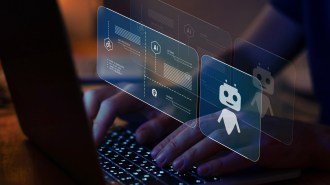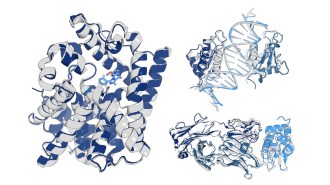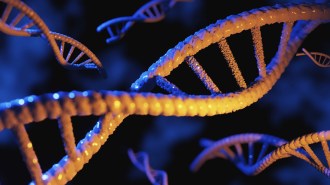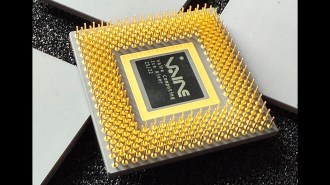Tech
Sign up for our newsletter
We summarize the week's scientific breakthroughs every Thursday.
-
 Psychology
PsychologyChatbots spewing facts, and falsehoods, can sway voters
Chatbots that dole out fact-laden arguments can sway voters. Those facts don’t have to be true.
By Sujata Gupta - Artificial Intelligence
Chatbots may make learning feel easy — but it’s superficial
People who use search engines develop deeper knowledge and are more invested in what they learn than those relying on AI chatbots, a study reports.
By Payal Dhar -
 Animals
AnimalsAI eavesdropped on whale chatter. It may have helped find something new
Some “clicks” made by sperm whales may actually be “clacks,” but marine biologists debate what, if anything, that means.
-
 Artificial Intelligence
Artificial IntelligenceAs teens in crisis turn to AI chatbots, simulated chats highlight risks
From blaming the victim to replying "I have no interest in your life" to suicidal thoughts, AI chatbots can respond unethically when used for therapy.
- Chemistry
A new AI technique may aid violent crime forensics
An AI tool trained on chemical signatures from corpse-eating insects may help determine time and place of death for victims of violent crimes.
By Meghan Rosen -
 Artificial Intelligence
Artificial IntelligenceThe AI model OpenFold3 takes a crucial step in making protein predictions
The open-source AI model improves transparency in predicting how proteins interact with other molecules, which could speed up drug discovery.
-
 Artificial Intelligence
Artificial IntelligenceA conference just tested AI agents’ ability to do science
AI promises to speed up scientific analysis and writing. However, AI agents struggled with accuracy and judgment.
-
 Artificial Intelligence
Artificial IntelligenceBiased online images train AI bots to see women as younger, less experienced
Age and gender bias in online images feeds into AI tools, revealing stereotypes shaping digital systems and hiring algorithms, researchers report.
By Sujata Gupta - Artificial Intelligence
AI-designed proteins test biosecurity safeguards
AI edits to the blueprints for known toxins can evade detection. Researchers are improving filters to catch these rare biosecurity threats.
-
 Genetics
GeneticsAI generated its first working genome: a tiny bacteria killer
Bacteriophages designed with AI kill E. coli faster than a well-studied strain, but the tech needs regulation before moving beyond lab dishes.
-
 Health & Medicine
Health & MedicineCan AI spot harmful health side effects on social media?
A new AI tool discovers harmful side effects of cannabis products from Reddit posts. Public health workers could use this info to help keep people safe.
-
 Tech
TechThis experimental computer chip reuses energy
A first-of-its-kind test shows that reusing energy within a computer chip can work, thanks to two techy tricks.